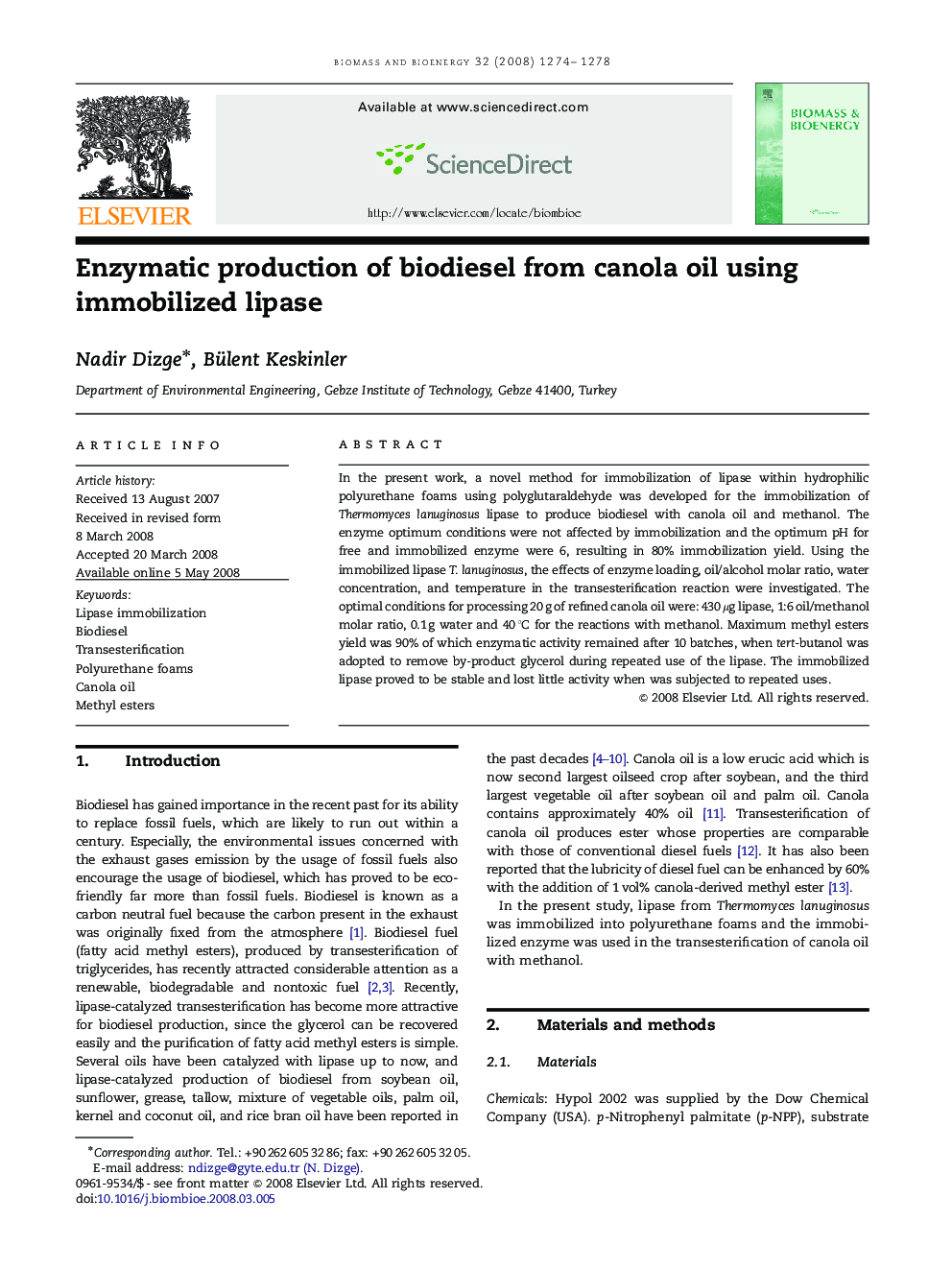| Article ID | Journal | Published Year | Pages | File Type |
|---|---|---|---|---|
| 678776 | Biomass and Bioenergy | 2008 | 5 Pages |
In the present work, a novel method for immobilization of lipase within hydrophilic polyurethane foams using polyglutaraldehyde was developed for the immobilization of Thermomyces lanuginosus lipase to produce biodiesel with canola oil and methanol. The enzyme optimum conditions were not affected by immobilization and the optimum pH for free and immobilized enzyme were 6, resulting in 80% immobilization yield. Using the immobilized lipase T. lanuginosus, the effects of enzyme loading, oil/alcohol molar ratio, water concentration, and temperature in the transesterification reaction were investigated. The optimal conditions for processing 20 g of refined canola oil were: 430 μg lipase, 1:6 oil/methanol molar ratio, 0.1 g water and 40 °C for the reactions with methanol. Maximum methyl esters yield was 90% of which enzymatic activity remained after 10 batches, when tert-butanol was adopted to remove by-product glycerol during repeated use of the lipase. The immobilized lipase proved to be stable and lost little activity when was subjected to repeated uses.
